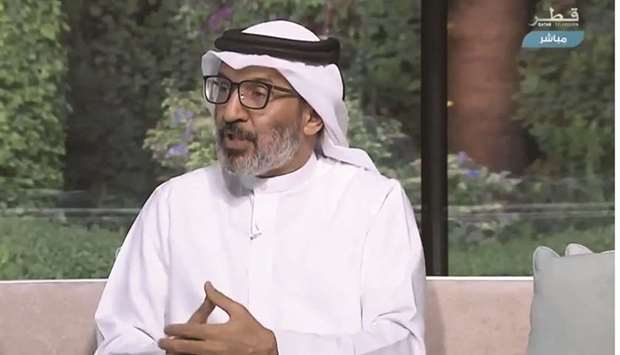As part of the process to give a third dose of the Covid-19 vaccine for specific groups in Qatar, 750 kidney transplant patients were sent messages and their list handed over to the primary health care centres, a senior official told Qatar TV on Wednesday.
"The third dose has no effect on travel and return procedures and will be of the same type of vaccine as the manufacturers have requested not to mix vaccines,” explained Dr Yousuf al-Maslamani, medical director of Hamad General Hospital.
The period between the second and third dose of the Covid-19 vaccine is from five to six months, according to him.
The Ministry of Public Health (MoPH) had on Tuesday approved a third dose of Pfizer/BioNTech and Moderna vaccines to individuals suffering from certain immunodeficiency diseases.
The MoPH approval was in line with the authorisation recently issued by the US Food and Drug Administration as well as the approval of the US Centers for Disease Control and Prevention.
"The third dose of the vaccine is meant to increase antibodies against infection in people with chronic diseases and those with immunodeficiency," Dr al-Maslamani pointed out.
The scientific committee (in Qatar) is following everything and there are studies confirming that the target group individuals are vulnerable to infection and hospitalisation if they do not receive a third dose of Covid-19 vaccine.
Regarding the effect of a third dose of vaccine, Dr al-Maslamani said that the risk is only in the first dose and if it passes safely there is less possibility that any additional doses could cause any problem.
"The Ehteraz application will remain the same and there will be no changes once a third dose is received," the official said. Referring to the 12-17 age group, Dr al-Maslamani said that 69% have been vaccinated and this is very close to achieving herd immunity.
"The third dose has no effect on travel and return procedures and will be of the same type of vaccine as the manufacturers have requested not to mix vaccines,” explained Dr Yousuf al-Maslamani, medical director of Hamad General Hospital.
The period between the second and third dose of the Covid-19 vaccine is from five to six months, according to him.
The Ministry of Public Health (MoPH) had on Tuesday approved a third dose of Pfizer/BioNTech and Moderna vaccines to individuals suffering from certain immunodeficiency diseases.
The MoPH approval was in line with the authorisation recently issued by the US Food and Drug Administration as well as the approval of the US Centers for Disease Control and Prevention.
"The third dose of the vaccine is meant to increase antibodies against infection in people with chronic diseases and those with immunodeficiency," Dr al-Maslamani pointed out.
The scientific committee (in Qatar) is following everything and there are studies confirming that the target group individuals are vulnerable to infection and hospitalisation if they do not receive a third dose of Covid-19 vaccine.
Regarding the effect of a third dose of vaccine, Dr al-Maslamani said that the risk is only in the first dose and if it passes safely there is less possibility that any additional doses could cause any problem.
"The Ehteraz application will remain the same and there will be no changes once a third dose is received," the official said. Referring to the 12-17 age group, Dr al-Maslamani said that 69% have been vaccinated and this is very close to achieving herd immunity.


